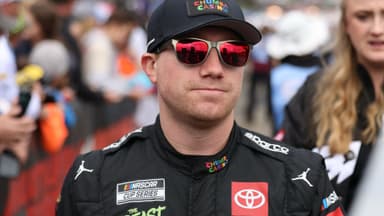Since its inception, NASCAR has seen dozens of vehicle manufacturers enter cars in its top three series. To date, Toyota remains the only non-American-owned company involved in the sport. Also since Dodge exited the sport back in 2012, the promotion has only seen three manufacturers — Toyota, Ford, and Chevrolet — competing on the racetracks.
Advertisement
Just before the Cup championship finale at Phoenix, NASCAR President Steve Phelps revealed during the State of the Sport press conference that talks were underway with several automakers about joining the series.
While Phelps did not specify which automakers were interested during the announcement, he had previously indicated that Honda might be one of them. Dodge and Hyundai are also considered potential entrants.
While NASCAR is still in talks, General Motors and its Cadillac brand are all set for an entry into F1, with official confirmation coming on Monday that the manufacturer and business partner Dan Towriss has reached an agreement in principle with F1 to introduce the long-anticipated 11th team in 2026.
Upon hearing this news, a NASCAR fan voiced their skepticism, offering a reality check to NASCAR executives: “I don’t know when NASCAR execs will get it but if you want OEMs to join, the sport has to grow.”
“Since 2018, F1 already has Audi, Ford, Toyota and now Cadillac. NASCAR’s been finding just ONE for more than a decade. It’s not because of costs, it’s because the sport is not growing,” they added.
NASCAR has been tweaking various aspects of its cars in hopes of drawing in new manufacturers, yet these efforts have so far fallen flat. One fan pointed out the counterproductive nature of these changes.
They mentioned, “And you can’t grow by cutting. Think of how much has been cut in just that 2018 timeframe alone. Less power, WAY less practice; hell we still had a pretty proper Speedweeks back then with Qualifying the week before.”
Echoing this frustration, another fan dismissed the rationale often given for these changes, stating, “Yep. Also the whole “manufacturers will only if the horsepower is low” is a bunch of bs. They been cutting horsepower since 2015 and here we are almost a decade later and nobody has joined. Whenever they mentioned their in talks with a OEM I don’t believe them at all.”
Another fan quickly dismissed the narrative by NASCAR officials that reducing costs through decreased horsepower could benefit the sport, pointing out, “And F1 is a hell of a lot more expensive than NASCAR, So the cost cutting measures they been doing is useless.” One fan took a dig at the organization saying, “They are busy working on the next gimmick.”
The seventh-generation (Next Gen) car has frequently been under fire for delivering a subpar racing experience, primarily due to its design and heavy reliance on aerodynamics. The governing body appears to have tried everything but the kitchen sink to address what seems to be a fundamental flaw in the racecar’s construction and design philosophy up to this point.
NASCAR’s experiments with various modifications to the Next Gen Cup car to enhance the racing experience on short tracks, focusing on innovations like different diffusers and tire compounds that degrade more quickly have all gone in vain.
Yet, when prominent drivers like Denny Hamlin, Joey Logano, Brad Keselowski, and Kyle Larson advocated for increased horsepower, NASCAR officials rejected the idea, arguing that the associated costs would be prohibitive.







